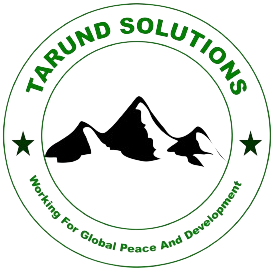Consultancy
Providing cutting edge consultancy services for operational and strategic excellence









General Consultancy Services
Are you looking for a professional organization to conduct an external evaluation of your projects, programs, operations, and systems? Are you looking for a professional organization to write winning grant/project proposals for you; develop competitive strategic and business plans? check out our consultancy portfolio below and place a request today!
External evaluation is always beneficial
Based on the results of an external evaluation, organizations can focus their efforts and resources on those actions that proved most useful and effective to achieve the maximum possible impact. As a matter of fact, evaluating is fundamental for several reasons:
- Evaluation allows to learn from experience, helping in identifying lessons learned and best practices, to constantly improve the impact of projects.
- Evaluation allows to deepen the history behind the projects’ results, that is, it helps you understand why an intervention was successful or failed.
- Evaluation allows to observe the results of the project from multiple angles, because it considers all categories of beneficiaries and stakeholders involved, deepening their different points of view.
- To evaluate increases the transparency of an organization, because it demonstrates the relevance, effectiveness and efficiency of its work in the eyes of financiers and stakeholders.
- Evaluation allows to easily communicate the value of an intervention, because it clearly quantifies its results and its social and economic impact.
TARUND Solutions - Consultancy Services is committed in spreading the culture of evaluation. The reason is simple: external evaluation is the only way to understand which interventions really work and why!
How do we carry out evaluations?
Evaluating a project or program requires a comprehensive strategy for data collection and analysis, methodologies appropriate to the objectives of the evaluation and the context of intervention. Our evaluation strategy is elaborated for each project, in order to take into account:
- the type of intervention;
- the objectives of the intervention;
- the types of actors involved (beneficiaries, but also stakeholders, project staff and experts);
- the peculiarities of local context;
- the resources available.
Ideally, the evaluation of a project or program should be commissioned to a specialized external body or company, in order to guarantee a professional and objective analysis. Although there are a number of perfectly valid reasons for an organization to decide to carry out the evaluation work internally, engaging us to carryout your external evaluation brings multiple key benefits.
5 Key Benefits of engaging us for your external evaluations:
1. Experience and competence
Our expert evaluators have specialized knowledge and brings a wide-ranging experience, gain by working on different types of projects in a wide variety of contexts and by using different methodological approaches.
This competence and experience allows our evaluators to identify the most effective evaluation strategy for each project, applying methods and tools that are most appropriate to accurately measure results and impact.
Their skills and experienced are essential especially when there is the need to evaluate particularly innovative or complex interventions, whose effects and impacts may not be take into sufficient account by standard approaches.
2. Objectivity
Our external evaluators provide a more objective and impartial look on a project or program, because of their independence from the organization that implements or finances the activities. Objectivity is essential to evaluate the real success of a project or program, as well as to allow an organization to learn correctly from its experience.
3. Credibility
Stakeholders and funding bodies tend to give greater weight to the results of an independent external evaluation, precisely because it is perceived as more impartial and rigorous. In fact, even when an organization does its best to objectively self-evaluate its performance, the conclusions may feel somewhat self-congratulatory.
4. A detached point of view
Our external evaluator provides a “fresh” and detached point of view on the project and its results. After months or years of work, the project staff is often so immersed in the management of the activities that they may not pay attention to unexpected effects that are being revealed. The external point of view cast by our evaluators will help you notice those changes that would otherwise go unnoticed (and therefore not measured).
5. Cost-effectiveness
An external evaluation service can be particularly convenient for small and medium-sized organizations, which often do not have sufficient resources to dedicate full-time internal staff to data collection and evaluation activities. In these cases, considering our external evaluation service might prove to be the most economically advantageous option.
Request For This Service
Why You Should Hire a Grant Writer
Grants can be an excellent way to get funding to a small organization and can make a significant impact on their ability to excel. Obtaining a grant is not easy though, you have to turn in a proposal that will wow the organization offering the grant, and there is usually pretty stiff competition.
Only eight percent of grant proposals receive funding, and with odds like that, this is not something you want to do. If you hire a professional grant writer, you can increase your chances of getting that much-needed funding, since they know the nuances involved in grant proposals and can make your proposal shine. Here, we will look at why you should hire us to do your grant writing instead of writing the proposal yourself.
Is it Worth it to Hire a Professional Grant Writer?
Nonprofits and small businesses need grant money to remain open, but when you run an organization, it can be hard to find the time to sit down and work on a grant proposal. It makes sense to hire a grant writer to help you get this funding, so you can focus on the day-to-day tasks that keep your organization running smoothly. The grant writer knows how to put together a winning proposal to help you succeed and has the time to make sure it is done right. You may not always need the help of a grant writer, but there are many situations where hiring one can be beneficial to your organization.
5 Reasons to us for your grant writing
Let’s take a look at some of the reasons why you should consider hiring us for your grant writing:
1. Increases Your Likelihood of Winning the Grant
There is a lot of time, research, and energy that can go into applying for a grant. It can be difficult to receive a grant because of how many people apply for them, so why not increase your chances of succeeding? A professional grant writer can help increase your chances of success, because they have experience in determining what the organization offering the grant is looking for. While there is no guarantee that you will receive the grant, even when you hire a writer, your chances of succeeding will go up with the help of a professional. In fact, a grant proposal that is written by a professional has a 60 percent chance of approval.
2. Saves You Time
Writing a grant proposal is time-consuming, and you might not have the time to fill out everything for the grant. Grant applications can take an average of 15-25 hours or more. If you only have a few minutes per day to work on your grant application, it is not getting the attention it needs to help you make it a winner. Putting one of your employees on the grant proposal can also be helpful, but then they are juggling their time between their regular duties and the grant proposal.
When you hire a grant writer, you can spend your time focusing on the rest of your business, while the expert you hired gets to work on the grant. You do not have to worry about your proposal being an afterthought or hastily put together at the last minute; they will spend the time necessary to ensure it is done right. You only get one chance at the grant, so you want to make sure you have the best chance.
3. Helps You Decide Which Grants to Pursue
Not every grant is worth pursuing. While a grant may look good to you on the surface, a professional grant writer may see something in the criteria that reduces your chances of receiving the grant or makes you ineligible. This will also save you time that you would have wasted working on a grant application that is not right for your organization. Your grant writer can help you identify the best grants to apply for.
4. Ensures Your proposal Stands Out
A professional grant writer is an expert at putting together excellent proposals. They know all of the ins and outs of grant writing, and they know what organizations are looking for in an application. Your application will be well written in a way that makes it stand out. Since the grant writer is not a member of your organization, they can see what you have to offer in a different light, and that new perspective can give them insights that will help make the grant application stand out.
5. Experienced at Meeting Deadlines and Requirements
Grants usually have strict applications and requirements, which can be difficult to keep track of. A professional grant writer is excellent at meeting deadlines on time and meeting any requirements. All you need to do is provide the grant writer with the necessary information to put together the grant, and the writer will do the rest. The application will be ready by the deadline, and every single requirement for the application will be met perfectly.
Make sure that if your grant writer asks you for information that you get it to them quickly. While you might be hesitant to give your grant writer documents about your budget or special projects, without that information, they cannot do their job. So, even if you might be hesitant to hand them all of this information if you want the grant money, you need to trust the writer.
Pro Tips For Hiring a Professional Grant Writer
- When you hire a grant writer, you want to make sure they are vetted and have the experience needed to write for you. When deciding on the grant writer for you, look at their track record for success, how compelling their arguments are in applications, and how clear their writing is. You will want to ask for writing samples of grants they have worked on and references from other organizations they worked with.
- When you hire your grant writer, keep in mind that they do not know your business the way that you do, so you want to find one who is willing to take the time to learn everything about your products or services so that they can accurately reflect you in the application. If they have experience in your field, that can help even more, because they can draw from their own knowledge when working on your proposal.
- Before you begin your search for a grant writer, determine what information they may need from you in the process. If you have a specific grant in mind when you hire them, put together the paperwork they might need to write your grant. This can help them get started sooner once you hire the right writer for you.
How Much Does it Cost to Hire a Grant Writer? - There are three ways that grant writers are usually paid: hourly, a flat rate per grant, and by retainer for a specific amount of time. How much you pay your grant writer will be determined based on their experience and your budget. Many professional grant writers have their rates in mind already, and some might be more expensive than others.
- If you find a grant writer that works on commission only, we do not recommend that you hire them. Some may only require payment if they win you the grant, but they want a specific percentage of the total grant money. This goes against most funding guidelines, and it is unethical. There is a chance that you could lose the grant if the organization that gave it to you learns of it, and there is a potential for legal consequences as well.
Request For Our Grant Writing Service
The importance of having a well-crafted Business Plan
Making the decision to create a new business is an exciting yet stressful experience. Starting a business involves many tasks and obstacles, so it’s important to focus before you take action. A solid business plan can provide direction, help you attract investors and ensure you maintain momentum.
No matter what industry you plan on going into, a business plan is the first step for any successful enterprise. Building your business plan helps you figure out where you want your business to go and identify the necessary steps to get you there. This is a key document for your company to both guide your actions and track your progress.
Why Hire us develop your Business Plan
1. Expertise And Experience
Expert business plan writers possess a wealth of expertise and experience crafting comprehensive and effective business plans. They understand the intricacies of different industries and can provide valuable insights specific to your startup's niche. Their knowledge allows them to identify potential challenges, highlight unique selling propositions, and showcase growth opportunities, ensuring your business plan is tailored to attract investors and stakeholders.
2. Tailored Approach
Every startup is unique, and a cookie-cutter business plan won't do justice to your vision. Expert business plan writers offer a tailored approach, taking the time to understand your startup's goals, target market, and competitive landscape. Then, they collaborate closely with you to incorporate your ideas and aspirations into the plan, resulting in a document reflecting your vision. This personalized touch increases the chances of securing funding and aligns the plan with your long-term business objectives.
3. Market Research And Analysis
Thorough market research is vital for understanding your target audience, competition, and industry trends. Expert business plan writers conduct extensive research to gather data-driven insights and ensure your plan is grounded in a solid foundation. They analyze market dynamics, consumer behavior, and emerging trends, enabling you to make informed strategic decisions. This comprehensive research strengthens your position, demonstrates your understanding of the market, and increases investor confidence in your startup's potential for success.
4. Financial Projections And Strategies
Financial projections play a critical role in attracting investors. Expert business plan writers excel in creating accurate financial forecasts and developing viable strategies to achieve your startup's financial goals. They analyze your cost structure, revenue streams, and growth projections to present a compelling financial story. Whether it's projecting revenue milestones, determining break-even points, or outlining profitability strategies, their expertise ensures that your financial projections are realistic, robust, and aligned with industry standards.
5. Clarity And Coherence
An effectively written business plan conveys your startup's mission, vision, and operational strategies with clarity and coherence. Expert business plan writers possess exceptional writing skills and can present complex ideas concisely and engagingly. They structure the plan logically, ensuring that each section flows seamlessly. Eliminating jargon and technical language makes the plan easily understandable to potential investors, stakeholders, and partners, maximizing its impact and facilitating clear communication of your startup's value proposition.
6. Time And Effort Savings
Launching a startup involves numerous responsibilities, from product development to marketing and networking. Hiring expert business plan writers saves you valuable time and effort by entrusting this crucial task to professionals. They take care of the meticulous planning and research, allowing you to focus on core business activities. In addition, their experience streamlines the process, ensuring that your business plan is completed efficiently, accurately, and promptly, giving you a competitive edge in the startup landscape.
7. Network And Connections
Expert business plan writers often have an extensive network and connections within the entrepreneurial ecosystem. They can introduce you to potential investors, mentors, or industry experts who can contribute to your startup's growth. Leveraging their network can open doors to valuable partnerships, collaborations, and funding opportunities that may not have been accessible otherwise. Their connections add immense value to your startup's journey and increase the likelihood of establishing meaningful relationships with key players in your industry.
Conclusion
Hiring expert business plan writers for your startup brings numerous benefits that can significantly enhance your chances of success. From their expertise and tailored approach to market research, financial projections, and clarity of communication, they add value at every stage of the business planning process. In addition, these professionals become invaluable partners in your entrepreneurial journey by saving you time, providing access to networks, and increasing investor confidence.
Request For This Service
The undeniable Importance of Strategic Planning
Strategic planning is the ongoing organizational process of using available knowledge to document a business's/ organization's intended direction. This process is used to prioritize efforts, effectively allocate resources, align shareholders and employees on the organization’s goals, and ensure those goals are backed by data and sound reasoning.
It’s important to highlight that strategic planning is an ongoing process—not a one-time meeting. However, the meetings are essential to set the ball rolling.
Strategic planning requires time, effort, and continual reassessment. Given the proper attention, it can set your business/ organization on the right track. Here are five benefits of hiring us or any other external consultant to facilitate your strategic plan development.
5 Reasons to hire us as your Strategic Planning Consultants
1. Save Time
Strategic planning takes time from staff and board leadership. Whether you use a consultant or not, your leadership team will need to be heavily involved in developing your organization’s strategy.
But without a consultant, these same leaders will also need to coordinate the actual strategic planning process itself. That means setting goals and timelines. Researching best practices. Crafting meeting agendas. Scheduling and facilitating planning retreats.
In contrast, a strategic planning consultant facilitates the process itself—leaving leaders to focus on strategy. Plus, an experienced consultant will come in with a set of tools and expertise that they’ll customize to your organization to make the experience productive and seamless.
2. Save Money
We all know that hours translate into dollars when it comes to staff time. Staff leadership participating in strategic planning will include some of the highest paid positions in your organization. Every hour your CEO or Executive Director spends prepping a strategic planning session agenda costs your organization money.
There are also opportunity costs. Especially for nonprofit organizations, the hours or even days an Executive Director spends on planning logistics means time NOT spent fundraising.
3. Build Authentic Consensus
Building consensus isn’t just about getting people to agree. It’s about creating space to grapple with challenges, explore opportunities, and co-create a path forward together. The key is encouraging full and authentic participation.
That’s why a strategic planning consultant doesn’t just organize a checklist (like you might find online). They facilitate consensus building across your team. And they help you make sure the right people are in the room for those critical conversations.
4. Strengthen Internal Alignment
When it comes to strategic planning, one of the most challenging parts is actually implementation. To set your organization up for implementation success, you need stakeholder alignment and buy-in. All of which starts during the strategic planning process itself.
Your strategic planning consultant will help you not only build consensus but guide you in thinking through how different organizational stakeholders should be involved in the process. For example, they can advise on gathering input through strategic planning stakeholder surveys or interviews. They can help you think through staff engagement in both planning and implementation. In short, they help you create a plan for how to build alignment—and then leverage the strategic planning process to achieve it.
5. Benefit from Priceless Expertise
A good strategic planning consultant will come to you with years of experience facilitating organizational planning processes. They know best practices—and have likely honed some of their own. They have experience navigating thorny internal dynamics and guiding organizations to successful outcomes. They have extensive training and practice in planning and facilitation.
And your organization will benefit from all the expertise your consultant has gathered over their career. Which makes hiring a strategic planning consultant an incredibly smart investment.
Request For This Service
Do you intend to start a company or non-profit organization (NGO)?
We are here to help you in:
- clarifying your objectives,
- choosing a relevant niche,
- registration formalities,
- developing your business/strategic plan,
- setting up your website, social media handles and online presence,
- developing a brand and advertising on social media, etc.
All of this and more for a affordable bundle cost!
Request For This Service
The Policy Development Consultant’s Landscape
In an ever-evolving world of regulations, laws, and governance, organizations often find themselves in need of expert guidance to navigate the complex terrain of policy development. Policy development consultants, or policy consultants, play a vital role in shaping the strategic direction of businesses, government agencies, and non-profit organizations.
Policy development is a multifaceted process that involves the creation, evaluation, and implementation of policies within an organization. These policies can cover a wide range of areas, from internal HR policies to public sector regulations. Policy development consultants are professionals with specialized knowledge and experience in this field, and they offer their expertise to clients seeking to create effective policies that align with their goals and values.
Why engage us as your Policy Development Consultants
Expertise in Policy Frameworks:
Policy development consultants are well-versed in various policy frameworks and understand the intricacies of legal and regulatory requirements. They help organizations align their policies with the current legal landscape, ensuring compliance and reducing the risk of legal issues.
Needs Assessment:
Consultants work closely with their clients to identify the specific needs and objectives behind the development of a new policy. This involves conducting thorough research and analysis to gain a comprehensive understanding of the client’s environment.
Strategic Planning:
Once the needs are assessed, policy development consultants strategize the policy creation process. They outline the scope, objectives, and timeline, taking into consideration potential challenges and opportunities.
Policy Drafting:
The heart of a policy consultant’s role is drafting the actual policy document. They use their expertise to craft clear, concise, and actionable policies that address the identified needs. These policies must be practical and enforceable.
Stakeholder Engagement:
Consultants also play a pivotal role in engaging stakeholders, such as employees, government agencies, or industry partners, to gather input and build consensus around the proposed policies.
Implementation Support:
Policy development consultants don’t stop at drafting the policy; they also help clients implement and communicate the new policies effectively within their organizations. This often involves training, change management, and internal communication strategies.
Monitoring and Evaluation:
Policies can’t remain static. Consultants establish mechanisms for monitoring the effectiveness of policies and recommend adjustments as necessary, ensuring the policies continue to serve their intended purpose.
The Impact on Success
The involvement of a policy development consultant can significantly impact an organization’s success. Here are a few ways in which they contribute:
Risk Mitigation:
Well-structured policies reduce the risk of legal disputes, non-compliance, and internal conflicts, ultimately protecting the organization’s reputation and resources.
Efficiency and Productivity:
Clear and effective policies streamline operations, making the organization more efficient. Employees can focus on their tasks with confidence, knowing they are working within established guidelines.
Alignment with Goals:
Consultants ensure that policies are in line with the organization’s strategic goals and values, contributing to a cohesive and purpose-driven environment.
Adaptability:
Policy consultants help organizations remain agile and adaptable in the face of changing regulations and industry trends. They ensure policies can evolve with the business.
Competitive Advantage:
Organizations with well-developed policies gain a competitive edge. They are seen as trustworthy, reliable, and well-prepared, which can attract customers, partners, and investors.
Popular Policies Organizations and Companies Need
- Code of Conduct
- Gender Mainstreaming
- Child Protection and Safeguarding Policy
- Anti-Bribery, Fraud and Corruption Policy
- Prevention of Sexual Exploitation and Abuse (PSEA) Policy
- Data Protection, Management and Confidentiality Policy
- Environmental Protection Policy
- Whistleblowing Policy
- Feedback and Complaints Policy
- Facility-use Policy
- Anti-Harassment/Discrimination
- Social Media Policy
- Workplace Safety Policy
- Conflict of Interest/ None-compete Policy
- Mobile device management policy
- Employment policies
- Employee Handbook
- Grievance policy
- Substance abuse policies
- Travel policy
- Functional policies
What is Supply Chain Optimization?
Supply chain optimization is the adjustment of a supply chain’s operations to ensure it is at its peak of efficiency. Such optimization is based on certain key performance indicators that include overall operating expenses and returns on the company’s inventory.
The aim is to provide customers with the products at the lowest total cost possible while retaining the highest profit margins. To achieve these goals, managers have to balance costs incurred in manufacturing, inventory management, transportation, and fulfillment of customer expectations.
Considering how complex supply chain optimization is, it’s best to tackle this business process as a long-term activity. What works is a blend of cost and service changes over time that take into account variations in resource costs, carrier changes, customer demographics, and other factors that require constant examination.
If a company is considering a merger or an acquisition, or is concerned with financial results, supply chain optimization is the first option to examine. Upon investigation, an organization might find several causes, such as high transportation costs, service levels that are not optimal, or unhappy service providers along the supply chain.
What is the process we use in Supply Chain Optimization?
The supply chain optimization process begins with a systematic and in-depth analysis based on forecast demand. This step is followed by creating a production and inventory plan based on the existing forecast. The entire exercise considers incoming raw materials or elements, the manufacturing process, transportation, and distribution. During this step, organizations should also examine every possibility for better e-commerce integration via omnichannel strategies.
Most companies work with professional services providers or consultants to implement technology and the organizational changes necessary to achieve tangible, real-world results.
There are three phases to a successful supply chain optimization process:
1. Design
This phase focuses on network design processes such as the location of warehouse facilities, the flow of products to and from suppliers and customers, and all the strategic objectives of manufacturing operations, including demand forecasting, supply establishment, planning, and scheduling.
2. Planning
This phase focuses on creating a strategic deployment, planning inventory, and coordinating assets to optimize the delivery of products, services, and information that flow from suppliers to customers. The purpose of this phase is to balance supply and demand.
3. Execution
This phase addresses all execution-based applications and systems such as warehouse and inventory management, management of transportation facilities and efficiency, and international trade management. It also investigates execution-based applications that play a support role in the supply chain process, including real-time decision-based support systems, supply chain visibility, and order placement management systems.
A supply chain network is a dynamic ecosystem. As it grows, so does the risk and uncertainty associated with activities across the supply chain. The factors that affect performance may be internal or external; they could be competition-driven or environmental. Considering the wide range of factors, numerous supply chain models have arisen. The model an organization chooses is based on specific supply chain optimization issues that are business-specific.
There are a number of components that commonly make up an organization’s supply chain optimization model:
- Inventory
- Receipt of product and their storage
- Processing orders
- Despatching and distribution
- Customer support and service systems
When placed together, these elements allow a business to tackle most supply chain optimization issues and create a well-rounded, seamless operation, ensuring work with all trade partners goes smoothly.
What are the benefits of supply chain optimization?
There are many benefits a business can expect from quality supply chain optimization software:
Cost reductions
With supply chain optimization, many unnecessary costs can be eliminated, streamlining expenses of business operations. All repetitive or ineffective processes can also be eliminated or automated as needed. The focus can be moved to meeting customer needs with timely, accurate deliveries. With supply chain cost optimization, a company can have a lower inventory which helps free funds prevent stock from becoming obsolete. Additionally, supply chain infrastructure expenses can be better managed by optimizing delivery processes, logistics, and warehousing capabilities.
Increased revenues and profits
With supply chain optimization tools, managers can get an insight into all activities and work on speeding up supply chain processes. The customer is likely to be more invested in the process and can have a better experience. Orders are accurately delivered, on time, and the company becomes more responsive to customer requirements. The result is a reduced investment-to-return-on-investment cycle and quick settlement of invoices, which supports customer loyalty.
Better supplier performance
Digitizing the supply chain enables access to real-time insights into the supply chain. Suppliers’ performance can be evaluated, which paves the way for improved performance where needed and rewards it, too, where appropriate. It lays the foundation for a system of continuous supplier performance improvement that’s essential to strategic sourcing decisions.
Enhanced supply chain collaboration
The organizational ecosystem comprises suppliers, partners, vendors, and all the interfaces connected to them. Bringing these entities together in a single supply chain optimization solution enables better collaboration and innovation.
Every stakeholder can access updated information, and as an integrated team, they can make smarter business decisions, supporting better supply chain continuity and avoiding risks.
Integrated supply chain management
With supply chain optimization software, you can integrate and manage all supply chain capabilities from a single point. Companies can gather insights on a host of elements that are part of the supply chain system–from its visibility to sales forecasting, management of cash flow, customer loyalty, timely delivery, and credit control. Such end-to-end visibility of the whole supply chain system allows for transparent operations.
Better quality
Managing quality in a supply chain involves an end-to-end production system from procuring raw materials to product delivery. Supply chain optimization techniques help organizations bring in quality at each stage, allowing for improved efficiency and waste reduction. These techniques also provide a foundation to support supply chain planning optimization, ensuring the process follows established quality standards at every stage.
Request For This Service
Request for any of our Consultancy Services










Organizational Development (OD) Services
Organizational development is a critical and science-based process that helps organizations build their capacity to change and achieve greater effectiveness by developing, improving, and reinforcing strategies, structures, and processes. Today’s world is characterized by Volatility, Uncertainty, Complexity, and Ambiguity (VUCA). This VUCA world requires new agility from organizations, and our organizational development services is the means to that end.
A Great Team is better than a Team of Greats
A team is a group of individuals who work together toward a common goal. Each member of a team is valuable to the common goal in their own way, using a unique set of skills to fulfill a team role. And yet, everyone on the team shares the same orientation and attitude. Though this may sound easy on paper, balancing individual and common goals within a team is quite difficult, especially during periods of stress, failure, or discord.
Effective leaders know, you’re only as good as the people you have around you. With this in mind, great leaders know that developing their team is an essential part of their role. Those leaders who are capable of building and developing effective teams have amassed a critical advantage over others. When delivered correctly, team development can create an innovative atmosphere that encourages cooperation, teamwork and trust among its members.
Characteristics of a successful team include:
- Mission: Everyone on the team has a clear understanding of what the collective goal is.
- Commitment: Everyone on the team invests their time, energy, and attention into the collective goal.
- The 3 R’s: Everyone on the team understands the RULES, ROLES, and RESPONSIBILITIES of the team dynamic.
- Process: The mechanics of inter-group communication, decision-making, and accountability are agreed upon and managed effectively.
Almost all teams lack one or more of these criteria at some point in their tenure. Team development strives to meet these criteria with ongoing reflection and growth. Like any form of development, it takes time and dedication to be effective. In other words, a team doesn’t develop from start to finish overnight. Regardless of the tools used for team development, the process must be maintained through long-term awareness.
Why is Team Development Important?
Maintaining an effective team is much like maintaining a garden; if left unattended, it loses its ability to thrive. Team development ensures that the team can thrive in the long term.
Engaging team development benefits the team in a number of ways. Individual members of a team learn more about their personal potential, duties, and work dynamically within the team. Conversely, team development acquaints each member with the talents and roles of other members. This combination of internal and external reflection strengthens communication, productivity, and well-being within the team.
Everyone improves greatly with a coach, how much more Executive Leaders!
From increasing productivity and employee satisfaction to enhancing job satisfaction and improving relationships in the workplace, executive coaching comes hand-in-hand with many benefits. Executive coaching provides a safe and open space for those in senior leadership positions to work one-on-one with a coach who offers a listening ear, reflections, and different perspectives and enables them to develop their leadership skills.
But many organizations and people in c-suite positions are yet to take advantage of coaching.
If you have recently received feedback that highlights areas for improvement or issues you are yet to navigate, executive coaching could well be the bridge that takes you from being a good leader to a great one.
Top 5 Reasons Why Executive Coaching is Important
1. Executive coaching provides executive leaders with a space to talk openly
An executive has a senior leadership role in an organization, with much responsibility for people and results, often in a ‘political’ environment. Sometimes, they can therefore feel isolated and vulnerable as they live up to expectations of their role, especially in a competitive business environment.
Here, executive coaching can provide executives with an independent, non-judgemental environment where validation, acknowledgement, and feedback can be taken at face value.
2. Executive coaching is designed to provide a thinking space
Executive coaching is designed to provide a thinking space for an executive in the company of someone who has no other stake in the game to cloud their vision.
In this space, executives can voice and examine thoughts, feelings, strategies, and courses of action and consider the next steps for the various opportunities and challenges they face, which may otherwise keep them awake at night.
Executive coaching is, therefore, a powerful creative addition to an executive’s toolkit; a potent ingredient in the dish.
3. Executive coaching can support work-life balance
Well-being is increasingly recognized as a crucial key to organizational success. Executive coaching can help an executive to integrate their work life and their outside-work life into an integral whole where these happen to be disjointed.
This integration can bring harmony when aligned with the executive’s personal values and personal vision. An executive who values the balance between work and life is more likely to encourage a healthy organizational culture.
4. Executive coaching offers different perspectives
An executive coach can bring a different perspective to enrich and open up new vistas, insights, and options, especially when from a diverse background that is different from the executives.
This may include a connection to kindness, fairness, compassion, trust, and authenticity, which have traditionally been excluded from the boardroom, but in our complex, fast-changing world now demands for leadership success.
5. Executive coaching reaffirms for leaders the value of nurturing themselves
The final reason in our top 5 reasons is that executive coaching can provide a useful reminder to any executive that they are the engine that is central to all they do and achieve. Such an asset deserves investment and nurturing by the executive and by their organisation.
To Conclude
From providing leaders with a space to openly discuss and request feedback to supporting work-life balance and providing different perspectives, there are many reasons why executive coaching is important. Of course, the above is not an exhaustive list, and there are plenty more reasons to cover.
If you hope to work with an executive coach, many of our coaches can support you.
As a one-stop coaching provider, we’ll take the time to listen to your current needs before identifying before assigning a coach to you.
When your current structure hinders work than enhance it, it may be time to re-design the organization
Organizational design is the process of creating organizational structures and determining how these structures will interact with one another. The primary goal of organizational design is to end up with an organizational structure that supports the goals that have been created for the business.
Organizational design impacts multiple parts of an organization. Essentially, it defines how people work. Org design influences who makes decisions and how these decisions are made. It affects whom workers report to and how communication works within and between teams.
Why redesign the organization?
The simplest reason to redesign an organization is that things change, and companies must also change in order to survive. That is what drives the need to make changes to organizational design. Exactly what those changes are can vary widely, and so can the depth and breadth of the changes.
Here are some of the more common triggers of an organizational redesign:
- Change in leadership
- Financial difficulties
- Introduction or loss of products or services
- Regulatory changes
- Rapid company growth
- Damage to reputation
- Low morale/high turnover
- Poor work/product quality
- New competition
- Growth opportunities
Each of these circumstances can lead to big or small changes to company goals. This in turn can make it necessary to engage in organizational redesign on some scale.
How does redesign impact an organization?
Organizational redesign can have many positive impacts on your organization. Unfortunately, there can also be negative effects if the redesign is poorly done.
Here are some of the positive impacts:
- A work environment that is better at meeting workers’ needs
- Increased efficiency
- Improved staff retention
- More agility in times of stress or change
- A better understanding of organizational values
- Improved communication
- Increased sense of ownership
- Better market relevance
There’s always some risk that an organizational redesign will fail. Here are some of the negative impacts that are common when this happens:
- Change isn’t sustainable
- People are frustrated or feel disenfranchised
- Increased turnover
- Lack of bonding to new goals and vision
- Inability to overcome roadblocks
- Issues that triggered redesign remain unaddressed
- New roles and responsibilities aren’t communicated clearly
We are ready to help your organization in its redesign in a manner that will be positive and sustainable!
What is Business Process Improvement (BPI)?
Business process improvement (BPI) is a practice in which enterprise leaders analyze their business processes to identify areas where they can improve accuracy, effectiveness and efficiency and then make changes within the processes to realize these improvements.
BPI works by identifying the operations, employee skills or enabling technologies that could be improved or added to encourage smoother procedures, more efficient workflow and overall business growth.
What is the purpose of Business Process Improvement?
The primary objective of BPI is to continuously improve the performance of both the formal and informal processes within an organization. By engaging in business process improvement, organizations can identify bottlenecks, friction, inefficiencies and other problems within their processes and take corrective actions, which helps them to do the following:
- cut costs;
- eliminate redundant efforts;
- ensure continued adherence to workflows and better compliance with rules and regulations;
- improve quality of their products or services;
- reduce errors; and
- speed output.
Additionally, BPI techniques can help an enterprise meet customer demands and business goals more effectively. Business process improvement also creates value in its ability to help enterprises fine-tune how they operate to ensure they are positioned to compete in today's technology-driven business environment.
Our Business Process Improvement generally involves the following steps:
Identify what process needs to change
This is typically done through business process mapping or other visualization of the steps, activities and workflows within the process.Analyze the pain points
This step includes identifying bottlenecks, inefficiencies, redundancies and other pain points within the workflow by using visualization tools as well as input from stakeholders.Conduct a root cause analysis
This helps to determine a strategy for how best to improve or eliminate problem areas.Design and evaluate
This could entail streamlining activities, reskilling workers or adding new technology such as robotic process automation (RPA); this step should also include analyzing and testing the proposed solution to ensure it does not have unintended negative consequences.Implement the new process
Change management techniques can help ensure successful adoption of the new or revised activity or technology.Evaluate and quantify
Reviewing metrics helps to ensure process changes have taken place and to assess the outcome.
Benefits and challenges of business process improvement
Each of the benefits of BPI is significant, but an enterprise with a strong BPI discipline can also improve the following with optimized processes:
- customer service, customer experience and ultimately customer satisfaction;
- worker experience; and
- automation, innovation and intelligence to processes, all of which support continuous enterprise transformation.
Together, these can help boost an organization's ability to compete in the market.
There are, however, the following challenges to implementing a successful BPI program:
- workers' resistance to change;
- unplanned improvements are not aligned to business goals; and
- lack of communication across the organization to relevant parties.
Engage us to evaluate and improve your business/work processes for greater productivity, job satisfaction and increased profitability
The Rise of Workplace Stress
Workplace stress is a common and costly problem that can affect the health, productivity, and morale of employees. A well-designed employee wellness program can help reduce stress levels, improve coping skills, and foster a positive work culture.
Sources of stress for employees
One of the best ways to reduce work-related stress and improve employee well-being is to identify the major stressors in your organization.
Potential causes of workplace stress include:
- Poor work-life balance
- Poor management
- Pressure to meet rising standards or expectations
- Lack of control over how employees do their work
- Lack of communication
- Lack of job security
- Lack of growth or career advancement
- Lack of PTO
- Heavy workloads
- Low salaries
- Working long hours
- Workplace conditions
Commuting
The cost of Employee Wellness
Employee wellness is based on the idea that healthy employees have many ways of helping the company’s bottom line. “Healthy employees” lead to “happy employees,” which often means “engaged and productive” employees, which is good for business.
Most employee wellness programs have four goals:
- Improve the health of employees
- Cut the costs of healthcare for employees
- Reduce the health risks of the people who work for you
- Sustain productivity and customer service
Employee wellness focuses on common health risks in any workplace, such as stress, being overweight, smoking, and high blood pressure. It has already been shown that these risks lead to major health problems for each employee and put a financial strain on the employer who pays for their health plan.
Our 5 steps to starting a workplace wellness program
Starting a workplace wellness program requires careful planning and execution to ensure its success. Here are five steps to guide you through the process:
1. Assessment and planning
Begin by assessing the needs and interests of your employees. Conduct surveys, focus groups, or interviews to gather insights into their wellness preferences, challenges, and goals.
Use this information to develop a comprehensive wellness program plan that aligns with your organization’s values and objectives. Determine the scope of the program (physical, mental health, emotional, etc.) and the resources needed.
2. Leadership support and alignment
Gain support from top leadership and key stakeholders within your organization. Leadership endorsement is crucial for securing resources, budget, and employee participation.
Clearly communicate the benefits of a wellness program, including its potential impact on productivity, morale, and overall employee well-being. Align the program’s goals with the organization’s mission and values.
3. Program design and implementation
Design a program that offers a variety of wellness initiatives tailored to your employees’ needs. This could include fitness challenges, stress management workshops, mindfulness sessions, nutrition education, and health screenings.
Collaborate with wellness experts or consultants to create evidence-based interventions. Develop a timeline for launching and rolling out different components of the program.
4. Communication and promotion
Create a communication plan to raise awareness and generate excitement about the wellness program. Utilize multiple communication channels, such as emails, posters, intranet, and company meetings, to share information about the program’s benefits, offerings, and upcoming events. Use engaging and motivating messaging to encourage employee participation and involvement.
5. Measurement and continuous improvement
Establish measurable objectives and key performance indicators (KPIs) to track the success of your successful wellness program. Regularly collect data on participation rates, program impact, and employee feedback.
Analyze the data to assess the program’s effectiveness and make informed adjustments as needed. Continuously seek feedback from employees to ensure the program remains relevant and engaging over time.
Some Best practices for employee wellness
Implementing effective employee wellness practices can lead to a healthier and more engaged workforce. Here are some best practices to consider:
- Conduct frequent surveys
- Give training on safety
- Provide snacks and water
- Workstation ergonomics matter
- Give a flexible work schedule
- Get rid of stressors at work
- Provide wellness services
- Organize breaks
- Do psychological evaluations
- Help everyone connect with their coworkers and bosses
Conclusion
Employee wellness has always been one of the most important things for any organization. So, all organizations should engage Organizational Development Consultants like us to work with them to put in place a contextual employee wellness programs at work because they can make a difference in a company’s bottom line.
Request for any of our OD Consultancy Services







